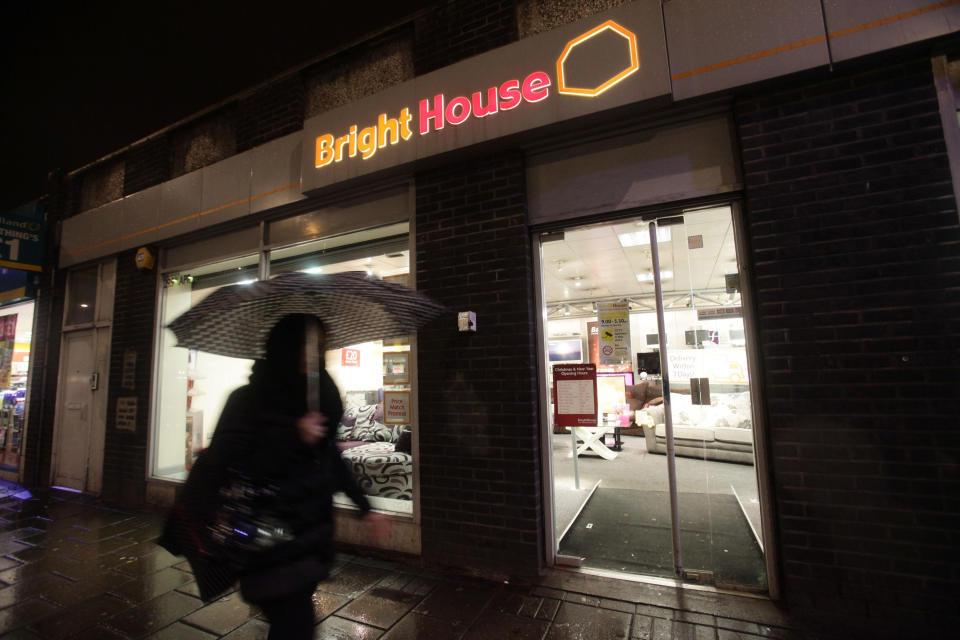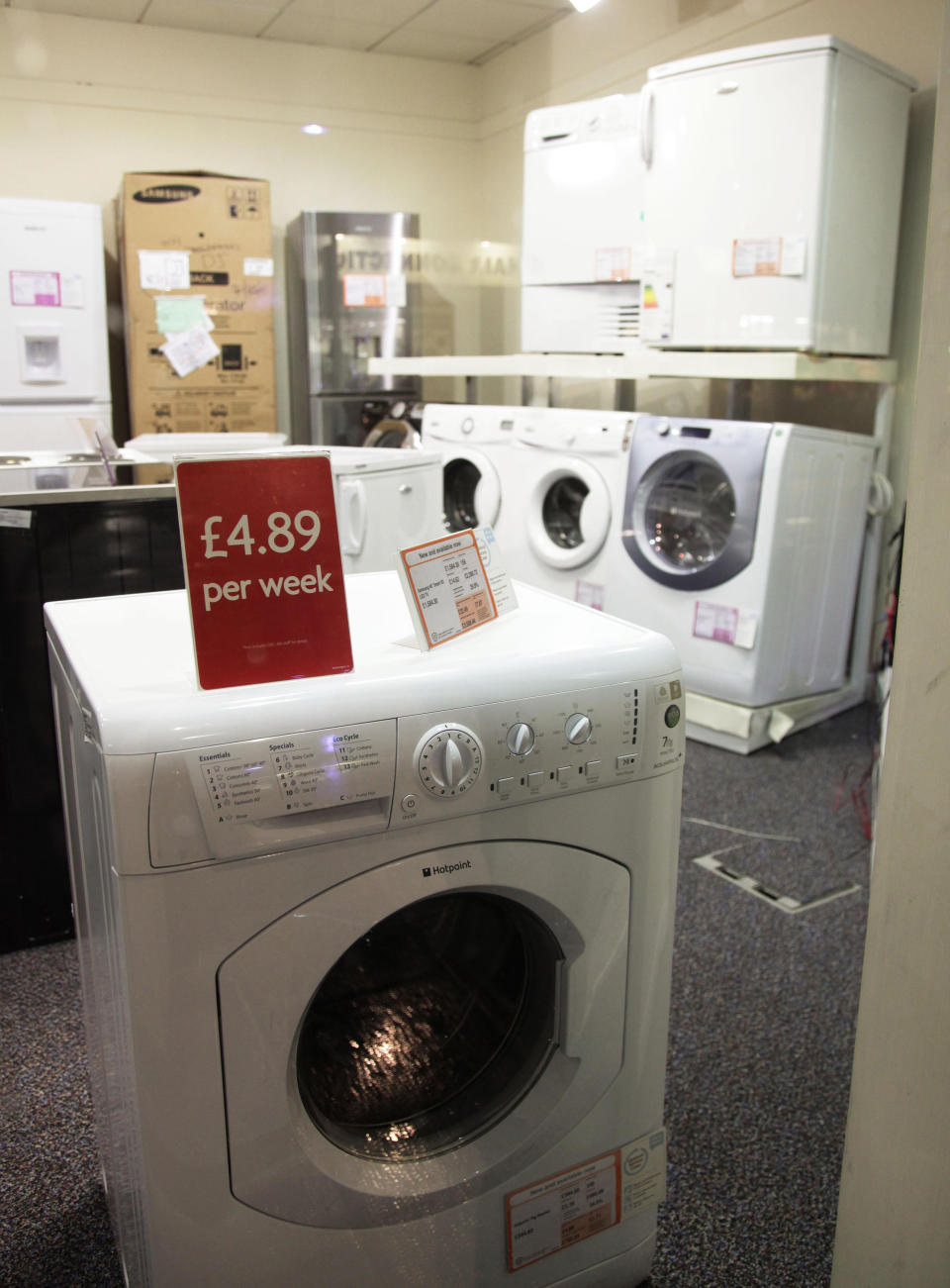BrightHouse loan scandal: Are you in line for compensation?

A high street retailer which flogs goods to hard-up people at up to three times the price of normal stores has been ordered to pay £14.8 million compensation to customers.
The City watchdog said BrightHouse had not acted as a “responsible lender” and had persuaded people to sign up to repayment terms they couldn’t afford.
Now some 249,000 people who were hit by the irresponsible lender will get some cash back.
What is BrightHouse?
It’s a rent-to-own company which essentially sells hire purchase agreements.
It offers people the chance to buy items they need for their home – such as televisions and washing machines – on what seem like easy terms.
MORE: Cheap pasta and free music: this week’s best deals
Their high street stores offer low weekly payments for big items such as – at the moment – £11 for a 43” Sony Smart TV.
But anyone tempted by that offer will end up splashing out £1,716 for the telly, which can be actually be bought at other high street stores for as little as £499.
Customers will also have signed a contract that commits them to making weekly repayments for a staggering 13 years.
Understandably many people struggle to keep up repayments for that long.
What sort of people use the company?
According to research published last year by the Financial Inclusion Centre typical rent-to-own customers are young mothers – often a lone parent – living in rented accommodation.
MORE: How to make the most of your pension
They are almost exclusively from low-income households that are wholly or partly reliant on welfare benefits.
The Financial Conduct Authority said that around half of the people who turn to rent-to-own end up with late payment difficulties with more than one in 10 thought to have had their goods repossessed.
What has BrightHouse done wrong?

It didn’t check whether people who signed up to its expensive interest terms could actually afford repayments, meaning many had to hand goods back, effectively meaning they paid out for nothing.
In particular the regulator said the company failed “those who were at a higher risk of falling into financial difficulty”.
MORE: Dealing with debt: ‘I was too poor to get out of the red’
Jonathan Davidson, executive director of Supervision at the FCA said: “During the time in question [between 2010 and 2016], BrightHouse was not a responsible lender and failed to meet our expectations of firms in this sector.”
Which customers are affected?
There are two sets of customers in line for compensation, although some find themselves in both areas.
Customers whose circumstances were not assessed properly to see whether they could afford loans and may have had difficulty making payments.
Those who handed back goods will be paid back the interest and fees charged under the agreement, plus compensatory interest of 8%.
MORE: Toys R Us launches its half-price pre-Christmas sale
Customers who retained goods will have their balances written off.
Compensation for 81,000 customers is around £10.1m for 114,000 agreements entered into between 1 April 2014 and 30 September 2016.
Customers who made the first payment due under an agreement with the firm which was cancelled prior to the delivery of goods.
The first payment was not returned to all customers. BrightHouse will refund the first payment plus pay compensatory interest of 8%.
MORE: Parents spending more on childcare than mortgages
It totals around £4.7m for 181,000 customers who entered into agreements between 1 April 2010 and April 2017.
How much will customers get?
The 181,000 customers whose deposits BrightHouse failed to refund between April 2010 and April 2017 will receive an average payment of £27.
The 81,000 who took out an agreement between April 2014 and September 2016 and were not assessed properly about affordability will get an average of £147.
How do affected customers apply for the cash?
There should be no need.
BrightHouse said it would write to past and current customers by the end of the year to explain what they are due.
The company’s boss Hamish Paton said: “We sincerely apologise to those customers who were affected. Our top priority is to ensure that they are reimbursed as soon as possible.”
Are there alternatives to the expensive rent-to-own firms?
Yes. A number of local authorities, housing associations and social lenders such as credit unions are working together to tackle the problem.
Last year not-for-profit online lender Fair For You launched to offer much more affordable finance for home essentials.
MORE: BrightHouse to pay customers £15m
It offers thousands of items for sale through its website at prices “broadly in line” with those on the high street.
If people qualify for loans they are charged interest at 3% a month.
Another rent-to-own alternative is the Smarterbuys Store, a not-for-profit charity based in County Durham which offers credit and provides household goods to housing association tenants.
It works with more than a dozen housing associations and local authorities across the country to offer “access to affordable and responsible finance”.

 Yahoo Finance
Yahoo Finance 
